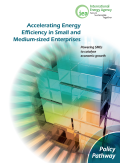
Improvements in energy efficiency offers considerable value for economies, societies, and SMEs, but efficiency investment is lagging because of a lack of information, resources, technical expertise, and funding. This policy brief describes how well-designed energy efficiency programmes can address these barriers, unlocking a wide range of benefits.
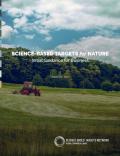
The guidance covers the following questions: What is a science-based target? Why are science-based targets important? How will they work?
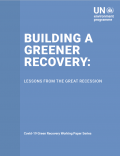
This report presents the impact of the global public health and economic crisis created by the pandemic and the growing financial burden on governments. The lack of adequate international support and coordination for ensuring progress towards the 17 Sustainable Development Goals (SDGs) has exposed the vulnerability of developing countries to the pandemic.
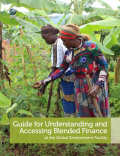
This guide is a resource on the Global Environment Facility (GEF) Council guidance and policies that helped shape the Global Environment Facility's approach to blended finance.

The guide presents a theoretical framework to complement efforts by countries to implement the long-term strategies developed under the Paris Agreement.

This report aims to track each of the G20 countries’ progress in phasing out government support to fossil fuels. It does so by reviewing progress in ending direct budgetary transfers and tax expenditures, price support, public finance and investments by state-owned enterprises for fossil fuels.

This report shines a spotlight on the trailblazers that are revamping their transportation systems, streamlining renewable energy projects and designing new finance mechanisms to ensure a just transition from COVID-19.
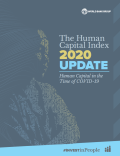
This report presents an update to the Human Capital Index (HCI), using the most recent health and education data available as of 2020.
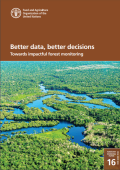
This paper explores country examples of forest monitoring and considers how forest monitoring can inform problem-solving, especially on public policy.
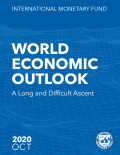
This guidance gives an overview as well as more detailed analysis of the world economy; consider issues affecting industrial countries, developing countries, and economies in transition to market; and address topics of pressing current interest.
